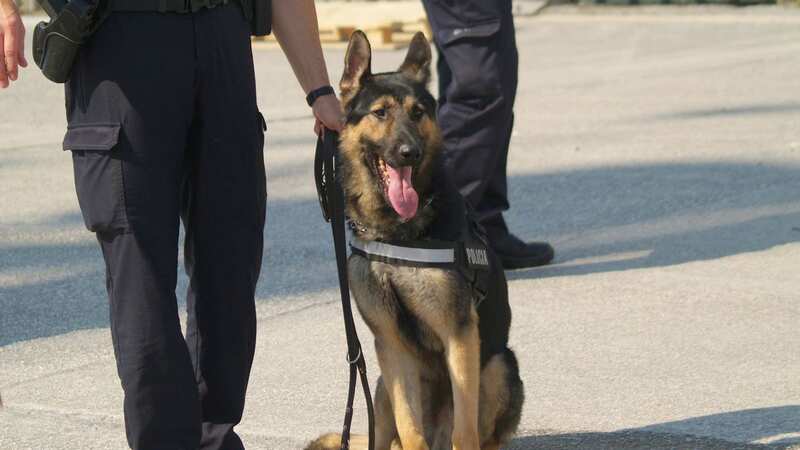School brings in sniffer dogs and searches to stamp out pupils using vapes

School chiefs are drafting in a sniffer dog to weed out the use of vapes among pupils.
The canines - usually used to hunt drugs and explosives - are being deployed in City of Norwich School (CNS) to tackle the problem. Teachers are also planning to install vape detectors in toilets, boost CCTV, carry out extra searches and increase staff patrols.
The raft of new measures comes as Prime Minister Rishi Sunak announced plans to ban disposable devices in order to combat a rise in youngsters using them. Experts have warned that the health implications of using them are not yet known, while schools have reported behavioural issues linked to their use.
A spokesman for the CNS said: "As with schools across the country, we recognise the negative impact the use of vapes and other prohibited substances can have on our students, both in terms of their health and the influence it can have on behaviour.
"While we do not currently have an issue with this at the school, we are aware this is a rising challenge within society and therefore want to take proactive steps to help counter and deter this. We are committed to providing an environment for our staff and students that is safe and supportive and as such the proactive measures we have planned will help to educate students on the risks of vape use and other banned substances."
 Nursery apologises after child with Down's syndrome ‘treated less favourably’
Nursery apologises after child with Down's syndrome ‘treated less favourably’
It is already illegal to sell vapes to anyone under 18. However evidence shows disposable vapes - which are cheaper and sold in smaller, more colourful packaging than refillable ones - are driving the rise in youth vaping. In 2021, only 7.7 per cent of current vapers aged 11 to 17 used disposable vapes, but this increased to 52 per cent in 2022 and 69 per cent in 2023.
Headteachers and parents have expressed concerns over the rise in youth vaping, with data showing 7.6 per cent of 11 to 17-year-olds now vape regularly or occasionally, up from 4.1 per cent in 2020. The sniffer dog is scheduled to be brought into the CNS next month. Alongside this, pupils will be taught the potential side effects and dangers of vaping.
It is not the first time the school has called on canine assistance, with the site currently employing a therapy dog to help pupil welfare. The spokesman added: "To complement this educational drive, we have taken steps to deter the use of unsafe and prohibited items. In February, a passive deterrence dog will be guided around the school site for a day, so that students can understand the role of deterrence and how this would work.
"The organisation that is supporting this has significant experience delivering this service in schools. Taken together, we believe these precautionary measures will help students to remain safe while and school and when out in the community."
The school has already sent out a letter to parents to advise them of the measures. In it, assistant headteacher Andrew Innes said the school would consider several "deterrents" to combat vaping. Children with concerns or fears of dogs have been encouraged to raise this with staff.
Read more similar news:
Comments:
comments powered by Disqus

































